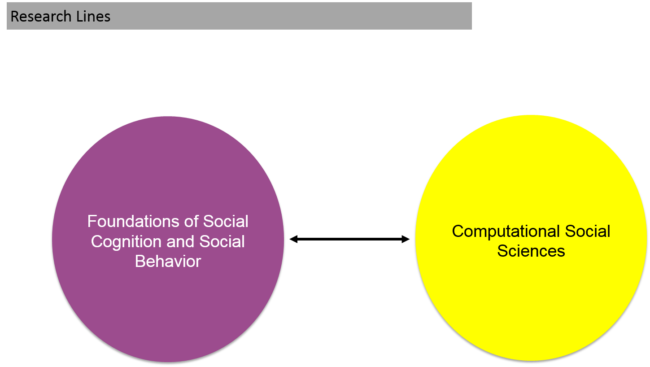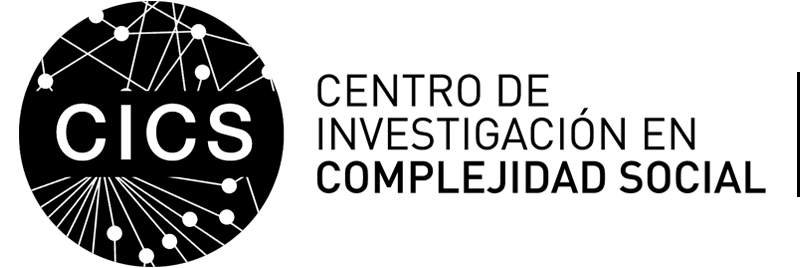Research lines
The traditional notion of incompatibility between social sciences and natural sciences has impeded a deep understanding of social interaction. Against this tradition, science has accumulated evidence that social interaction is conditioned by biological, psychological, cultural, economic and institutional aspects.
Researchers at CICS speak to each other in the language they have in common, which is mathematics. Empirical models and methods from the social sciences, such as ethnography, experimental psychology, experimental economics, econometrics and game theory, have a complementary model and empirical methods derived from natural sciences, such as dynamic systems, network analysis, genetics and functional magnetic resonance imaging, amongst others.
Mathematical language also provides the analytical structure that allows the production of unified explanations for human behavior in society, from the diverse scientific views that arise from multidisciplinary work.
Research lines:
- Fundamentals of Cognition and Social Behavior (Foundations of Social Cognition and Social Behavior). From the use of experimental techniques (using the paradigm of the Experimental Game Theory) and, in the case of neuroscience studies, complemented with fMRI, EEG and TMS records, both in the laboratory and in the field (for this purpose the students have a mobile laboratory that has 50 tablets in a network), and informed by interdisciplinary bodies, such as evolutionary psychology, biological anthropology and political economy, the psychological mechanisms (and their neurobiological basis) are studied ) that underlie emergent behavior patterns in contexts of social interaction at the micro or meso level.
- Computational Social Sciences (Computational Social Sciences). Through techniques such as multivariate analysis, data mining (Data Mining), automated learning (Machine Learning) or natural language processing (Natural Language Processing) and making use of the information available from the registration of our fingerprint (p .ej., Twitter, cellular networks, Web of Science), together with modeling techniques such as agent-based simulation or network analysis, study complex dynamics associated with the formation of mutual support networks and the dissemination of ideas.



